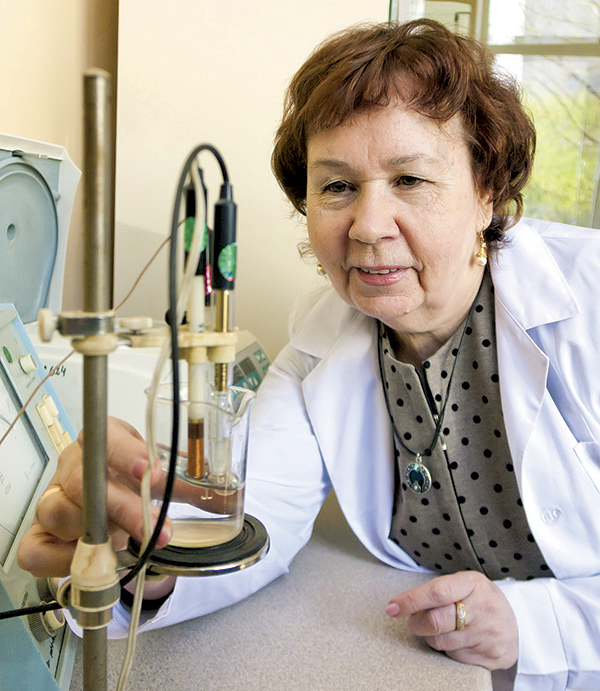
Head of Animal Genetics Laboratory, Maria Mikhailova
The Head of the Laboratory of Animal Genetics, at the Institute of Genetics and Cytology of the National Academy of Sciences, Maria Mikhailova explains, “Agricultural livestock in our country, as elsewhere in the world, is the foundation of our food security. All inhabitants of farms and complexes must be healthy and productive. Selection of the best allows us to gain healthy offspring while improving meat and milk yields: all vital.”
Animals, like people, suffer from a wide range of hereditary diseases, which grow from mutations in the genome. Of course, two apparently healthy individuals may give birth to sick offspring, since genes hail also from their forebears. The complete genetic line is relevant.
Geneticists leave nothing to chance in creating a genetic passport, although such work takes great effort and time. Breeders are currently closely monitoring our aurochs to avoid sibling relationships. Eight years ago, hereditary mutations stood at about 6 percent; now they are just 0.1 percent.
Maria Mikhailova tells us more:
What problems currently affect our cattle?
The most disadvantageous mutations are hereditary immune-deficiencies, since these make the animal vulnerable to ‘cold’ viruses. Vertebral malformation, including rickets, is also significant. Even simple stress can affect an animal’s ability to fight off illness. Pigs, for instance, are not always suited to crowded conditions, and can become afraid of injections and man. Their stress can then make their meat less flavoursome.
Geneticists are very concerned about the health of our aurochs.
Yes, we are preparing certificates for each, using samples from inhabitants of the Belovezhskya Pushcha, where there are most problems with genetic material. Our livestock pool is quite large these days but it can be difficult to collect samples, since they are wild animals. We need to raise the viability of the population through selective breeding. This requires each ‘forest giant’ to have a passport. So far, our data suggests that our auroch gene pool is less varied than on the Polish side of the forest.
Will genetic passports prevent the birth of mutants, with too many limbs and so on?
Not completely, since other factors are involved: medicinal and ecological. Sometimes, in the womb, two eggs are fertilised and then fuse, creating a chimera. If we conducted an ultrasound, we’d probably avoid such cases.
Tell us about diagnosing and treating the early stages of leukemia.
Leukemia has a long period of latency, from 8 to 12 years. It becomes active with age or changed conditions. We’ve learned to identify the disease in its ‘dormant’ stage, allowing intervention. We’ll patent the technology soon. We can diagnose and treat the virus but lack much practical experience.
By Vera Arteaga











